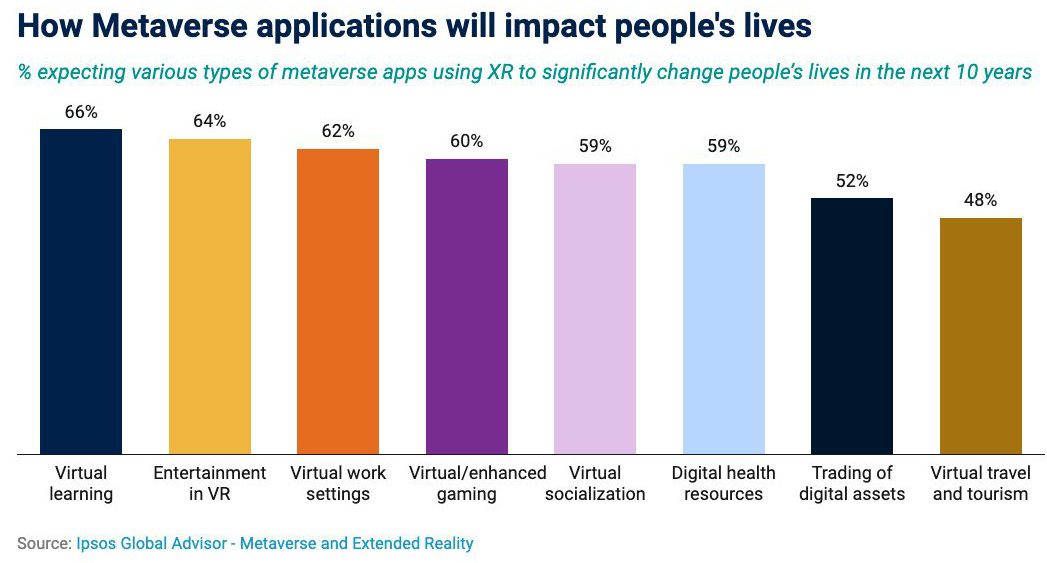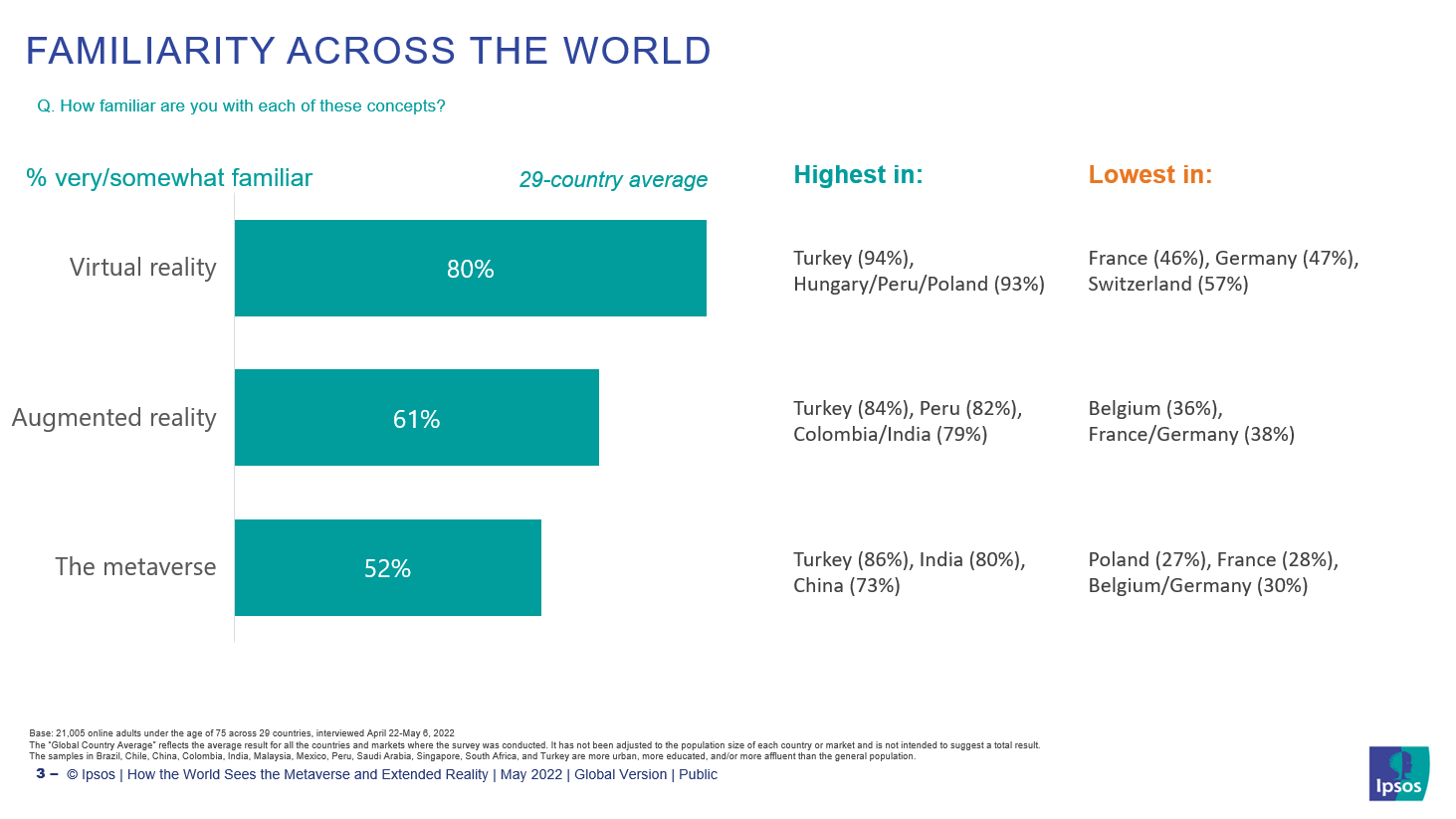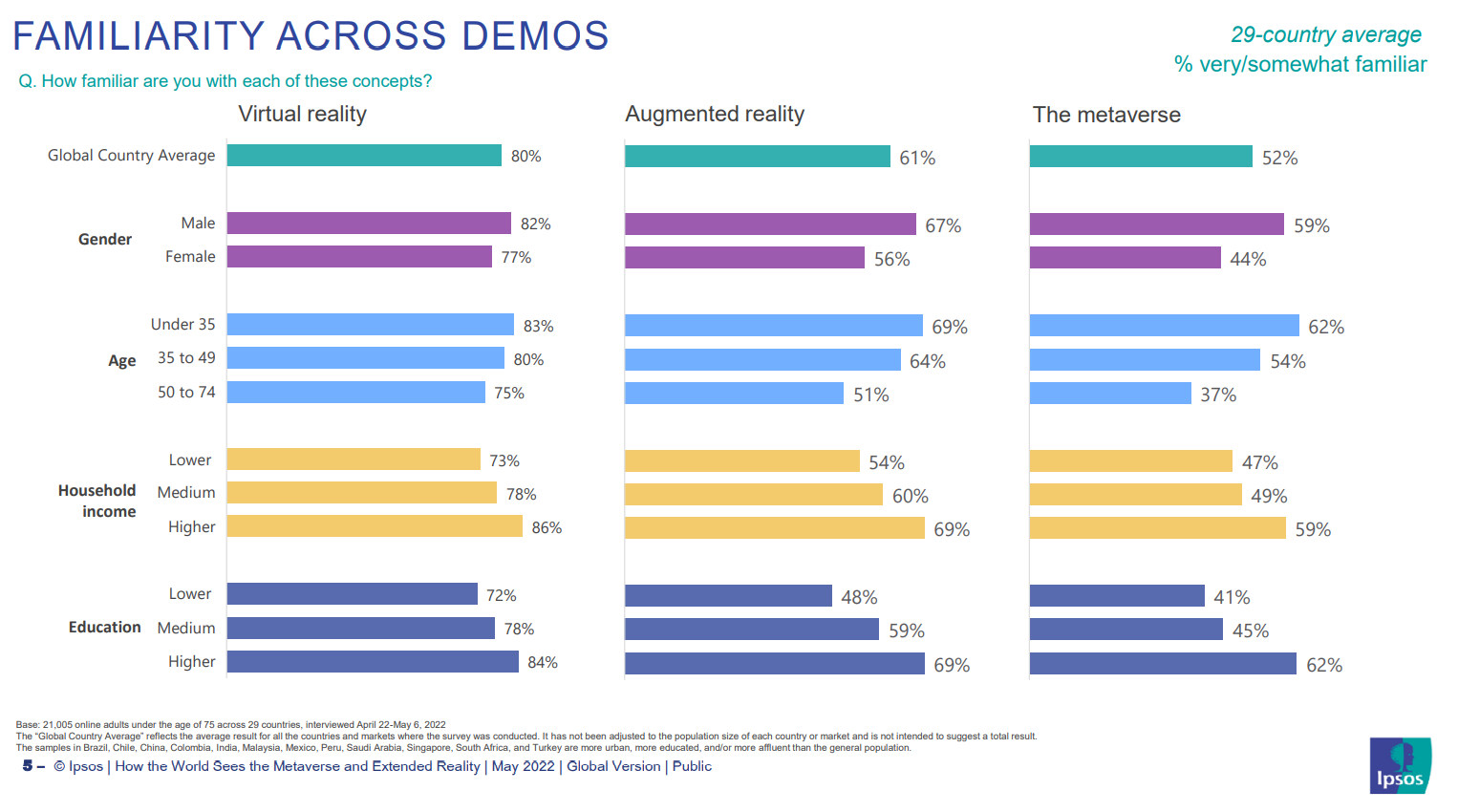VR & AR (XR) and the metaverse are becoming commonly known across the world. In a new survey conducted by Ipsos for the World Economic Forum (WEF), 21,000 adults were surveyed about their familiarity and expectations of the metaverse and related technologies. At Axon Park, we are particularly interested in this subject as students around the world switch to learning in the metaverse.
When asked about the areas in which the metaverse would have the greatest impact, respondents reported Virtual Learning as the top use case (we loved seeing this!), followed by entertainment, virtual work, gaming, socialization, digital health, trading of digital assets then virtual travel and tourism.

In general, the data reveal that emerging countries are generally more upbeat and excited about the potential of metaverse technologies, compared with “higher-income” countries. Looking at the global averages for all surveyed countries, “Virtual Reality” was the most well-known term at 80% recognition, followed by “Augmented Reality” at 61%, then “The Metaverse” at 52%. Turkey was the country with the highest familiarity across the board, followed by countries such as Peru, Hungary, India, Colombia, and China. The countries with the lowest familiarity were France, Germany, Switzerland, and Belgium. Interestingly, Poland ranked as one of the top countries for “Virtual Reality”, yet one of the lowest for “The Metaverse.”

Younger demographics, with higher household income, and more education were the most likely group to know about these technologies.
 Another interesting finding highlights the difference in anticipation for this next-generation technology between countries. In countries such as China, India, Peru, Saudi Arabia, and Colombia, 2/3 of people reported a high degree of positivity around engaging with XR and the metaverse, compared with 1/3 in countries such as Japan, Great Britain, Belgium, Canada, France, and Germany.
Another interesting finding highlights the difference in anticipation for this next-generation technology between countries. In countries such as China, India, Peru, Saudi Arabia, and Colombia, 2/3 of people reported a high degree of positivity around engaging with XR and the metaverse, compared with 1/3 in countries such as Japan, Great Britain, Belgium, Canada, France, and Germany.
This is just the start. Over the next decade, much like we saw with the internet and mobile phones, these technologies will become ubiquitous for users around the world. This presents tremendous opportunities for the equalization of access to high quality education. We are grateful to be supporting this collective mission to bring the magic of these experiences to the masses! It’s now easier than ever to get started with metaverse learning, and if you’re interested in exploring the world of metaverse education we’d love to connect with you.
Feature image by Javier Miranda



